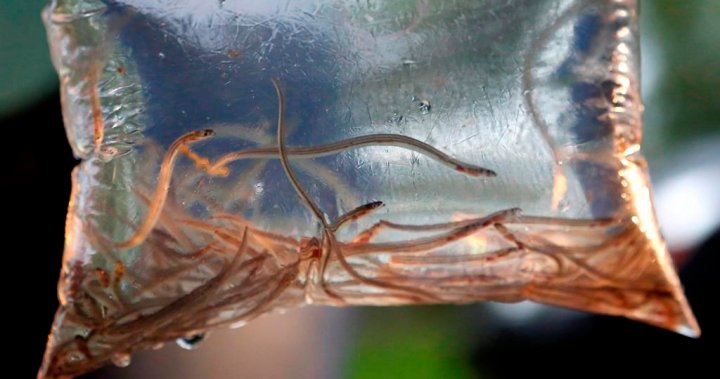The Canadian Department of Fisheries and Oceans (DFO) has announced a postponement of information sessions regarding a controversial pilot project aimed at redistributing a portion of the Maritime baby eel (elver) fishing quota. This decision follows a wave of criticism from existing commercial license holders and their employees, who have expressed concerns about the potential disruption and negative impacts of the proposed changes. The original plan, announced in December 2024, sought to reallocate 27% of the total allowable catch of approximately 10,000 kilograms of elvers from nine established commercial license holders to 120 individuals. This redistribution would grant each of the 120 individuals, primarily current employees of the commercial license holders, the right to harvest 22 kilograms of elvers this spring.
The proposed pilot project intended to diversify access to the lucrative elver fishery, which has historically been concentrated within a small group of commercial operators. By granting individual quotas to a larger pool of fishers, the DFO aimed to create economic opportunities and distribute the benefits of the fishery more broadly. The initiative was also presented as a means of addressing concerns about the concentration of fishing power and promoting greater equity within the industry. However, the plan sparked immediate backlash from the existing license holders and their employees, who argued that the redistribution would create unnecessary competition and instability within the fishery.
The primary concern raised by the fishers centers on the logistical challenges associated with the proposed individual quotas. Many fishers have expressed a preference for maintaining their current employment arrangements with the established license holders, who possess the infrastructure and expertise necessary for efficient elver harvesting, storage, and sale. Under the proposed system, each individual fisher would be responsible for these aspects, raising concerns about potential inefficiencies, increased costs, and a lack of access to established markets. Furthermore, the prospect of 120 individuals competing for limited resources in the same fishing areas has raised fears of potential conflicts and overfishing.
Fishers have also questioned the feasibility of the proposed quota allocation, arguing that the 22-kilogram individual limit is insufficient to generate a viable income. The small scale of the individual quotas, coupled with the added costs of independent operation, could render the venture unprofitable for many, undermining the intended economic benefits of the redistribution. Furthermore, concerns have been raised about the potential impact on the overall sustainability of the elver fishery. Some argue that the increased number of participants and the lack of centralized management could lead to overfishing and damage the long-term health of the elver population.
In response to the widespread criticism, the DFO has decided to postpone the planned information sessions, originally scheduled for January 21, 2025. This delay will allow the department to further evaluate the feedback received from stakeholders and reconsider the proposed changes. The DFO has stated its commitment to engaging with the fishing community and reaching a decision that addresses the concerns raised while maintaining the sustainability of the elver fishery. The future of the pilot project remains uncertain, and the DFO’s next steps will be closely watched by all stakeholders involved in the elver fishery.
The controversy surrounding the elver quota redistribution highlights the complex challenges involved in managing valuable and sensitive fisheries. Balancing the interests of different stakeholders, promoting economic opportunity, and ensuring the long-term sustainability of the resource requires careful consideration and effective communication. The DFO’s decision to postpone the information sessions provides an opportunity for further dialogue and collaboration, potentially leading to a revised plan that addresses the concerns raised while achieving the desired objectives of diversification and economic development within the elver fishery.

